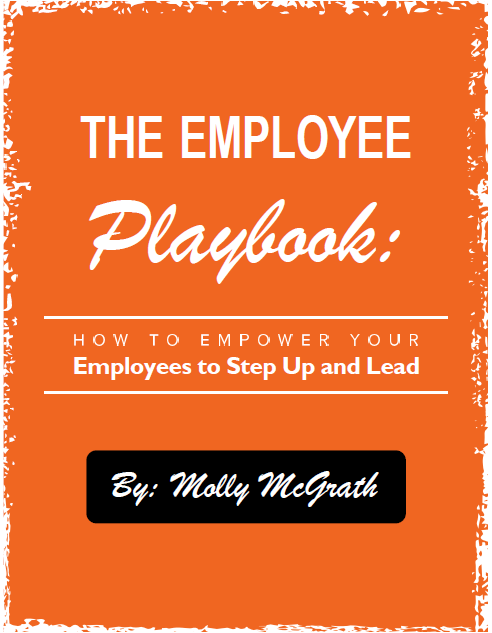The concept of permission – in essence, allowing ourselves to live the lives we want instead of chasing the expectations of others – is a new way of adjusting our approach to life. (Follow these links if you need to catch up on what permission is and the kinds of permission.)
So what is keeping us from this powerful realization?
There are three pervasive myths that daily interrupt our ability to give ourselves permission. They persistently sabotage our abilities to live life awake, aware and in tune with others. Let’s break them down, one by one, and find ways around them.
Myth #1: You Should Just Be Grateful
We’ve all heard this one a thousand times, enough to make our hair stand on edge. “Be grateful for what you have in life.” It surrounds everything in your existence. Be happy that you have a car, a home, a job, your health. But let us reinterpret: The implication is that you shouldn’t want something different, or strive to change your life, because that means you don’t appreciate what you have. You can almost hear an authoritarian voice barking “Who do you think you are? This isn’t enough for you?” It’s enough to make you shrink into yourself, and scrap your crazy ideas of pushing toward something better.
 People tell you to be grateful when they really want to say, “Stop being selfish.” But the demand for your gratitude is a barrier that keeps you from permission. You can in fact be grateful without being a sacrificial lamb. You can be grateful without suffering and settling.
People tell you to be grateful when they really want to say, “Stop being selfish.” But the demand for your gratitude is a barrier that keeps you from permission. You can in fact be grateful without being a sacrificial lamb. You can be grateful without suffering and settling.
Gratefulness has simply become a response mechanism that gets you to stay right where you are. If you are feeling butterflies in your belly, anxiety and the tightening of your chest, it’s time to grow. Gratitude just won’t cut it. You’re not being selfish by doing what’s best for you. You’re just being smart.
Here’s a different way to see gratitude. If you are grateful for something, why would you not take it to its absolute limits, nurture it and use it in your life? If you are truly grateful, you appreciate the things in your life and use them. If you were so grateful for a sweater your friend knitted for you, would you show your gratitude by sticking it in the back of your dresser drawer and never wearing it? Of course not. You would take the sweater, pull it over your head and wear it to an important event. Everybody has gifts of their own. When we are grateful for these gifts, we put them to use. Don’t think, I’m grateful, therefore, I’ll just appreciate what I have. It doesn’t make any sense.
These thoughts are what we are conditioned to think by our society and our culture. But does true gratitude really look like “just being grateful” that you have a job and a paycheck? What if true gratitude was about being thankful for the true gifts you have, the potential you could achieve, or the possibility of another opportunity; from there, the gratitude of life begins to kick in and almost kicks your butt out the door. You can leave a job or a spouse or a friend with integrity. You don’t have to drop the ball on people and go out in a wrecking-ball manner, you can do it powerfully, with grace. Something to truly be grateful for is the awareness that there is more out there for you than what you’ve been suffering through. Gratitude can be the complete opposite of permission, but true gratitude co-exists with permission.
Myth #2 – You Can’t Care What People Think
You’ve heard it so many times: You shouldn’t care what people think about you. Social media hammers you with it, loved ones reinforce it, even therapists preach it. “Stop caring about what people think and do what’s best for you.”
We’re all for not letting someone’s words or actions derail you. But if we truly don’t care, what does that really say about us? If you say you don’t care what other people think, you do care, because you’ve just voiced it and put attention there. Believing and acting that way is ultimately disempowering. After all, how can you be a powerful person who wants to make a difference and not care? It is a lie, and one that holds people back greatly, because the truth is that deep down, you do care, and you almost always will, even if you are saying otherwise.
But you can still care and act with compassion. You can choose to interact with people in a different way, without going through life pretending that you don’t care. You don’t have to own what other people are putting on you, but you can care and push back with love and compassion. You can live life as a compassionate person who comes from a place of community and unity, striving to co-exist on this planet.
The truth is, it’s not about caring; it’s about how you process those encounters with people that really matters. If you get a negative response from someone because what you said or did didn’t resonate with them, it’s OK. It doesn’t have to be true for them. There’s no need to give them the middle-finger attitude. Sometimes, in giving yourself permission, you are actually being a beacon for other people. In that space, it’s impossible not to care.
Myth #3 You Have to Implode to Grow
Implosion. Just the word conjures up images of buildings collapsing into a pile of dust. The myth that you have to implode to grow is exactly what it says: You’ll have to destroy everything you’ve ever known, liked or cared about and re-create it. That implies that even the people and things you love have got to go.
People buy into the belief that you need to take a wrecking ball to all that is and start over, destroying everything in your way. For this reason, people are terrified of change. If I grow, what will I lose? What do I have to give up to change? This gut-wrenching fear will stop us in our tracks, with a train coming at us at 100 mph.
Laney remembers when this myth first showed up in her life. She was working in a law firm where many of her mentors and co-workers had been through the entire Landmark forum, a personal-transformation program. Every time someone came back from one of the workshops, they’d encourage Laney to attend, saying, “It’ll change your life. It changes everything.” Whenever Laney heard the word everything, she froze. She liked most of her life; why would she want to go to an event that would change everything?
But change, permission and growth don’t have to come from a complete dismantling of everything in your past. There’s this destructive belief that says you can’t bring anything from your old toy box into your new room because it represents some other part of you that you no longer want to associate with. Because of this, people shut down, implode, and disconnect from everyone in their life. It is a turn off (and a myth) to think you’ve got to chop people out of your life and implode to get somewhere different. If you do operate from that mindset, it’s actually selfish, destructive and irresponsible behavior. We’ve seen people go through immense pain from taking this path. It doesn’t have to be that way.
Instead, you have to shift the conversation from an “either/or” conversation to an “and” conversation. You can change, grow and keep those things in your life that you love.
We need to be careful with the people who are out there promoting growth, change and self-awareness. Sometimes these people, even if they have the best intentions, aren’t always poster children for change and often have a lot of drama in their own lives. They can be overt and outlandish, taking drastic measures to change their life – and sometimes their change works, but many times it’s a three-ring circus with a lot of frills and hoopla. We find that the best advocates for change are the silent ones – changing behind the scenes, with us barely noticing. Can you think of someone who has dropped off the face of the earth for some time, only to re-emerge after going through an incredible personal change or transformation? It happens all the time, yet it’s almost so quiet that we don’t notice. So often, though, this is the most effective way to achieve real, lasting change.
These myths that block your path to permission aren’t the only hurdles you’ll confront. In our next post, we will get into different behavioral patterns that also impede your growth and your quest for permission.
Do you need support getting the right team members on board? We can help you hire just what you need – don’t be “seduced by their resume”. Click here to find out more: Smart Hire Solution.

